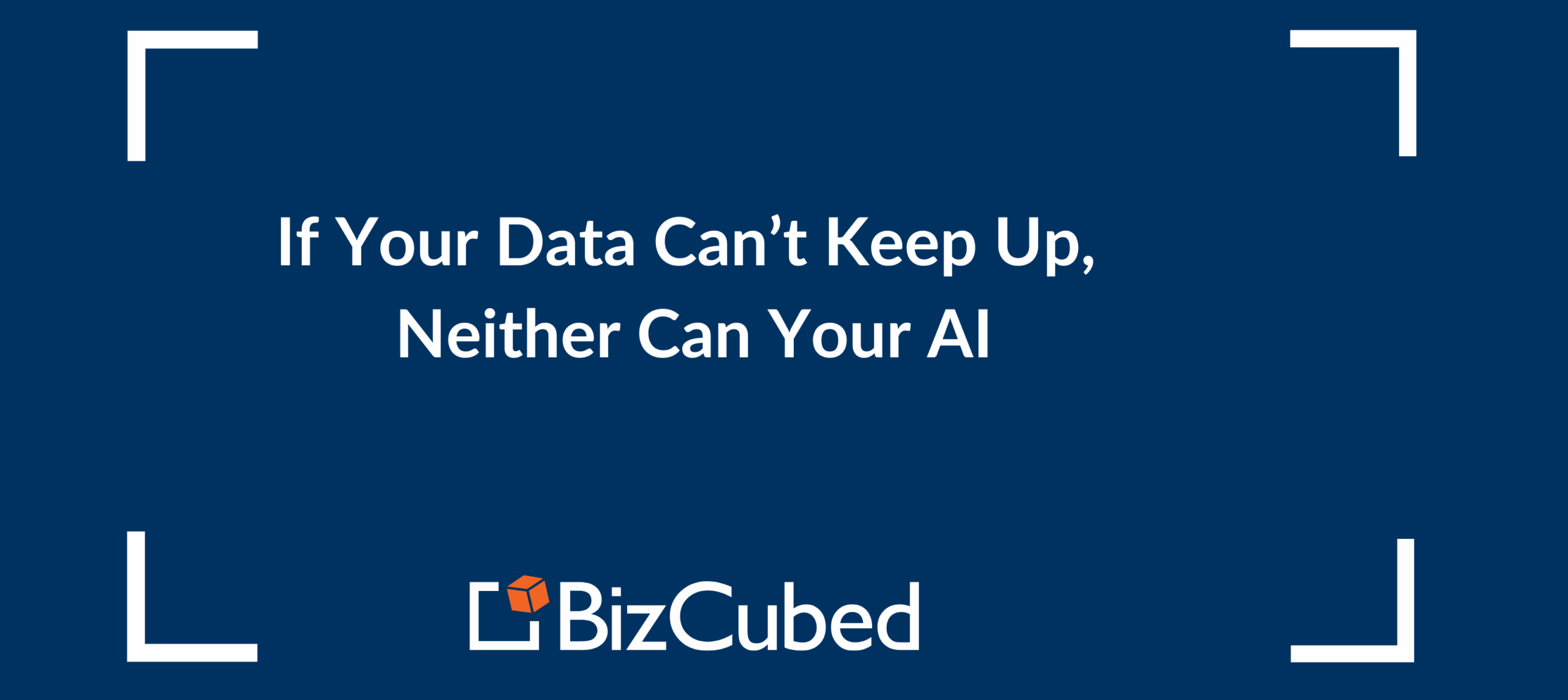
Does your business have a regular program of continuous data ecosystem improvement in place?
Leaders don’t need convincing that data matters. Everyone knows that investments in AI, ESG reporting, customer platforms, and growth strategies all rely on data to succeed. The question is, is the data ecosystem that underpins your operations getting the attention it needs?
It’s always there, quietly (or not so quietly) humming away at the foundation of your organisation, with all its capabilities and risks. We see a company’s data ecosystem as its digital twin; a reflection of whether or not it is operationally sound, and whether or not its objectives are adequately supported.
Here’s the stark reality for anyone leading teams toward growth, innovation, and competitiveness: it’s time to look under the hood and ask whether you’re dedicating enough focus and resources to your data ecosystem and your data team.
And not just once—this needs to happen regularly. In fact, there should be a program of continuous data operations improvement in place to ensure your data ecosystem keeps pace with the evolving needs of your business.
You don’t need a complete overhaul. But you do need a clear commitment. Make your data ecosystem a named part of your objectives. Because no matter what your strategy is, your data is either enabling it—or quietly undermining it.
AI Is the Front End—Data Is the Engine
Earlier this year, I wrote that in 2025 more businesses will realise their AI implementation success hinges on their data. This is inevitable. Expectations have been set, resources committed, and outcomes promised which means efforts will be measured and assessed.
If the data ecosystem can’t support new tactics such as AI implementations reliably, then AI becomes a risk, not a reward. And if that innovation fails, it’s not just a technical failure—it’s a leadership credibility problem.
Structured, consistent, well-governed data isn’t a technical nice-to-have—it’s a strategic imperative. If your data is siloed, patchy, manually wrangled, or reliant on one or two key people to make it all work, your AI isn’t going to fly. And your broader digital strategy? It risks collapsing under its own weight.
Data has been treated like an IT problem for too long, and it shows. Ambitious change agendas don’t just need “better data.” They need consistency and transparency in data operations that are structured to support business operations and objectives.
That means:
- Clean, consistent data pipelines across departments
- Built-in checks, controls, and quality benchmarks
- Repeatable patterns and process automation
- Data literacy and ownership across business functions
What’s Really Holding Back Innovation?
When projects stall or fall short, it’s tempting to focus on the tools: the reporting platform that doesn’t deliver, the integration project stuck in limbo, or the AI that never quite works as promised.
But more often than not, these are symptoms rather than root causes.
Strengthening the data ecosystem doesn’t always require a full overhaul.
What it does require is regular, structured assessment: understanding what your data ecosystem can do, what it should be doing, and whether it did perform as expected. Gaps should be surfaced and addressed—not in crisis mode, but as part of business-as-usual operations. That’s how you build capability over time and avoid surprises when the stakes are high.
Strong data performance requires strong data systems as well as data and IT teams that are given time, clear priorities, the right structures, adequate investment, and access to external expertise to extend their capabilities as needed.
This Is Where Data Engineering Shines
Data follows the same rules as other complex systems: it’s full of dependencies, constraints, and feedback loops. If you don’t design it for reliability and performance, it won’t behave the way you want it to. Full stop.
So, we help organisations do just that: design or restructure data systems that support their goals. We train internal teams while we work, ensuring your people aren’t just passengers but co-pilots.
And we embed systems for continuous data operations improvement to make sure your data operations stay aligned with your business operations, even as the market moves.
Trust Is Built from the Ground Up
This brings us back to trust.
Whether you’re looking at compliance, ESG transparency, or AI-powered services, you’re operating in an environment where every interaction is a trust decision. Your employees, customers, regulators and stakeholders are constantly evaluating whether you can be trusted, based on the data experience they’re having.
If a report is wrong, a tool suffers from a lack of data, a service is impersonal, data governance and security are not evident, or a claim doesn’t feel credible, the judgment is the same: I don’t trust this.
To fix that, your business has to be serious about how its data systems support trust, security and compliance. That’s why trust architecture is part of the data engineering services we provide. It’s why we embed operational data security as a core part of our approach. Trust isn’t a checkbox. It’s a capability built layer by layer.
Future-Proofing Starts Now
In 2025, AI isn’t optional. But neither is having the data ecosystem to support it.
If your strategy includes automation, hyper-personalisation, ESG reporting, risk reduction, or customer experience transformation, then now is the time to make sure your data operations aren’t the weak link.
You don’t need to start from scratch. You just need to start with what you’ve already got—and fix it. Make it work harder and smarter.
AI might be the future —but that future depends on data.

Rebecca Zeus
Rebecca Zeus is BizCubed’s CEO. A chemical and environmental engineer by training and a Lean Six Sigma Blackbelt, she has built a global reputation as an expert in process design and implementation. At BizCubed, she has implemented an intentional value-aligned, reduced-bias recruitment process, and led a company-wide initiative to formalise and certify BizCubed’s Information Security Management System. She is also a mother of four, an avid volunteer, a non-profit board member, and a crafting-enthusiast.